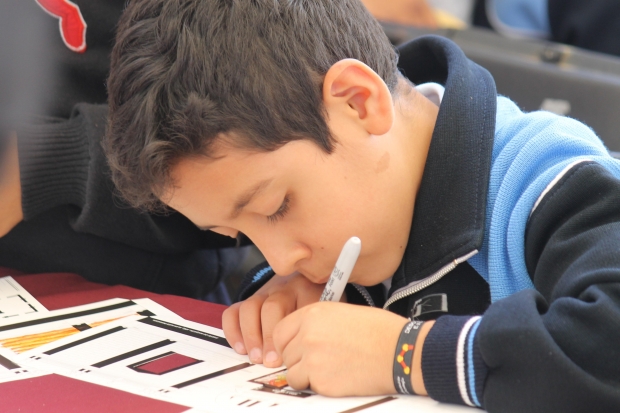Whether you refer to it as a game or as a learning activity, dictation may be old school but it’s still a great way to find out how your child is doing with their language art skills. It’s very simple: Just read out a sentence or two and have your kid write it down, word for word. They may choose to physically write it out or they can use a keyboard. What you’re looking for is skill-level in language so the medium doesn’t matter. In addition to showing you where their skill level is, dictation can help kids in a number of ways.
Dictation can help increase your child’s listening skills
If your child has trouble listening, try this: Read a sentence while they sit and listen. Read it again and have them write it down while you’re speaking. Then read it a third time while they check their work. Once they’re done, move on to the next one. This teaches them to listen without even realizing what they’re doing.
Find out what common mistakes they’re making
If you’re relying solely on what you hear when your children talk, then you’re not up to date on their language skills. For example, do they know the difference between their, they’re, and there? Do they know when to use it’s and when to use its? What about two, too, to, or you’re and your? These can be confusing but if you don’t see them write them down, you’ll never know if they’re really perfected them.
Teach them to focus five minutes at a time
A common complaint of parents is that their kids have trouble concentrating. At CodeREV Kids, we recommend your child comes to us and learns how to code. They’ll figure out how to focus very quickly and will love doing it!
Another option is to teach dictation five minutes a day. They may not have the focus to do it for twenty minutes at a time, but if you tell your kid you’re going to dictate five sentences, they can likely focus. As time goes on and they learn to look forward to this challenging activity, add a few sentences to the game. Just make sure they’re still having fun and be sure to check their work every time.
